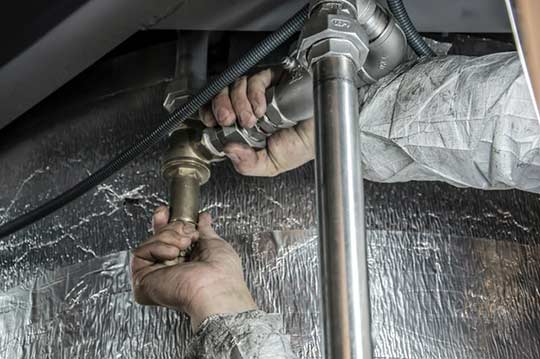As a homeowner, you may experience issues with your plumbing system, and one of the most common problems is leaks. While leaks can be fixed with minor repairs, it may be ideal to consider repiping your Chicago home. Repiping involves installing new pipes in your home, replacing the old and worn-out ones. It can be an arduous process, but it’s worth the investment as it makes your home safer and more convenient to live in. In this article, we discuss the benefits of repiping your home.
Enhanced Water Pressure
Old and corroded pipes can significantly affect the water pressure in your home. You may notice that the water flow in your shower, tub, and faucets are weaker than usual. Repiping your home enhances water pressure by installing new pipes that are free from any form of corrosion and mineral build-up. You can enjoy a satisfying shower or washing your dishes without experiencing any low-water pressure issues.
No More Leaks
Leaky pipes are a major issue in Chicago homes. Not only do they cause water damage to your property, but they also spike up your water bill. Leaky pipes can be challenging to locate and fix, as they are often concealed in walls, under the flooring, or behind fixtures. Repiping your home eliminates the risk of leaks as new pipes are installed, and faulty pipes are removed. You can save money on water bills and costly repairs by repiping your home.

Leaky pipes are a major issue in Chicago homes. Not only do they cause water damage to your property, but they also spike up your water bill.
Better Water Quality
Corroded pipes can contaminate your water supply, leading to health issues and a strange taste and odor in your water. Repiping your home improves the water quality by installing new pipes that don’t contaminate or leach chemicals into your water. You can enjoy drinking water from your tap without worrying about quality or taste.
Improved Energy Efficiency
Old and worn-out pipes can also affect your energy consumption. As hot water is transported from your water heater to your fixtures and appliances, it can lose heat as it travels through the pipes. This can cause your water heater to work harder than it should, leading to higher energy bills. Repiping your home with insulated pipes can reduce heat loss, improve the performance of your water heater, and lower your energy bills.
Increased Home Value
Repiping your home can boost its overall value, especially if you’re planning to sell your property in the future. Prospective buyers are more likely to consider homes that have newer plumbing systems as it means fewer repairs and lower maintenance costs. You can also market your home as a safer and more efficient living space to attract potential buyers.

Repiping your home offers a long-term solution to all your plumbing issues, and you can enjoy living in a safer and more comfortable home, knowing that your plumbing system is up-to-date.
Peace of Mind
One of the most significant benefits of repiping your home is the peace of mind it provides. You won’t have to worry about leaky pipes, low water pressure, or contaminated water. Repiping your home offers a long-term solution to all your plumbing issues, and you can enjoy living in a safer and more comfortable home, knowing that your plumbing system is up-to-date.
In Conclusion
Repiping your Chicago home is a wise investment that offers many benefits. It can enhance water pressure, eliminate leaks, improve water quality, increase energy efficiency, boost your home value, and provide peace of mind. While repiping can be a costly and daunting process, it’s worth the investment in the long run. Consider hiring a local plumber who has experience in repiping homes to ensure that the job is done safely and efficiently.
—

